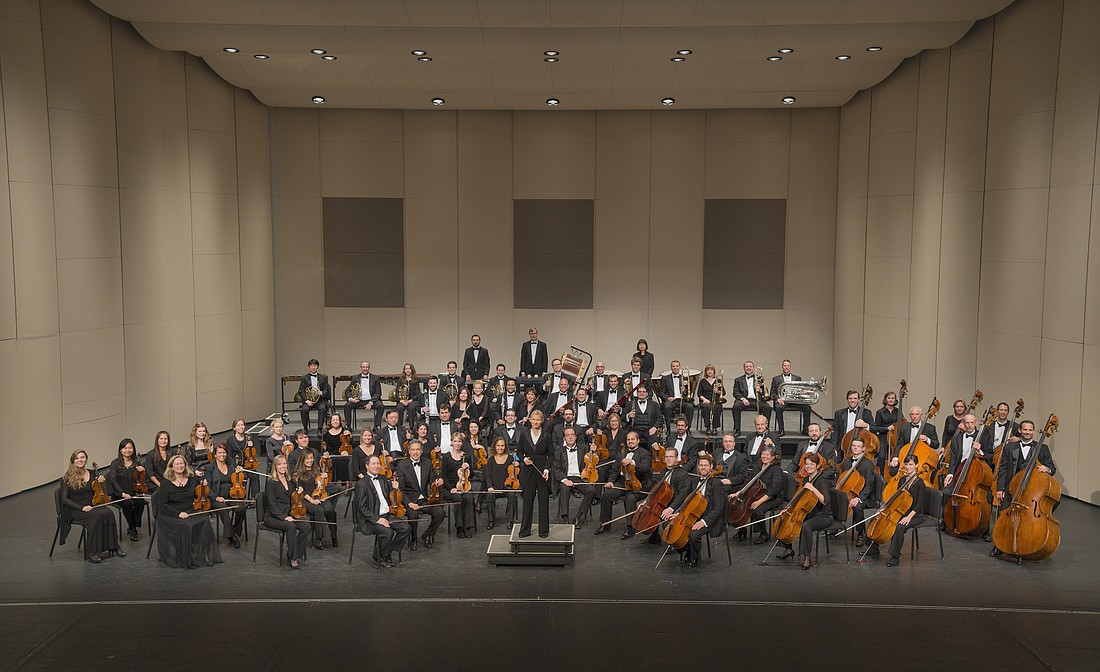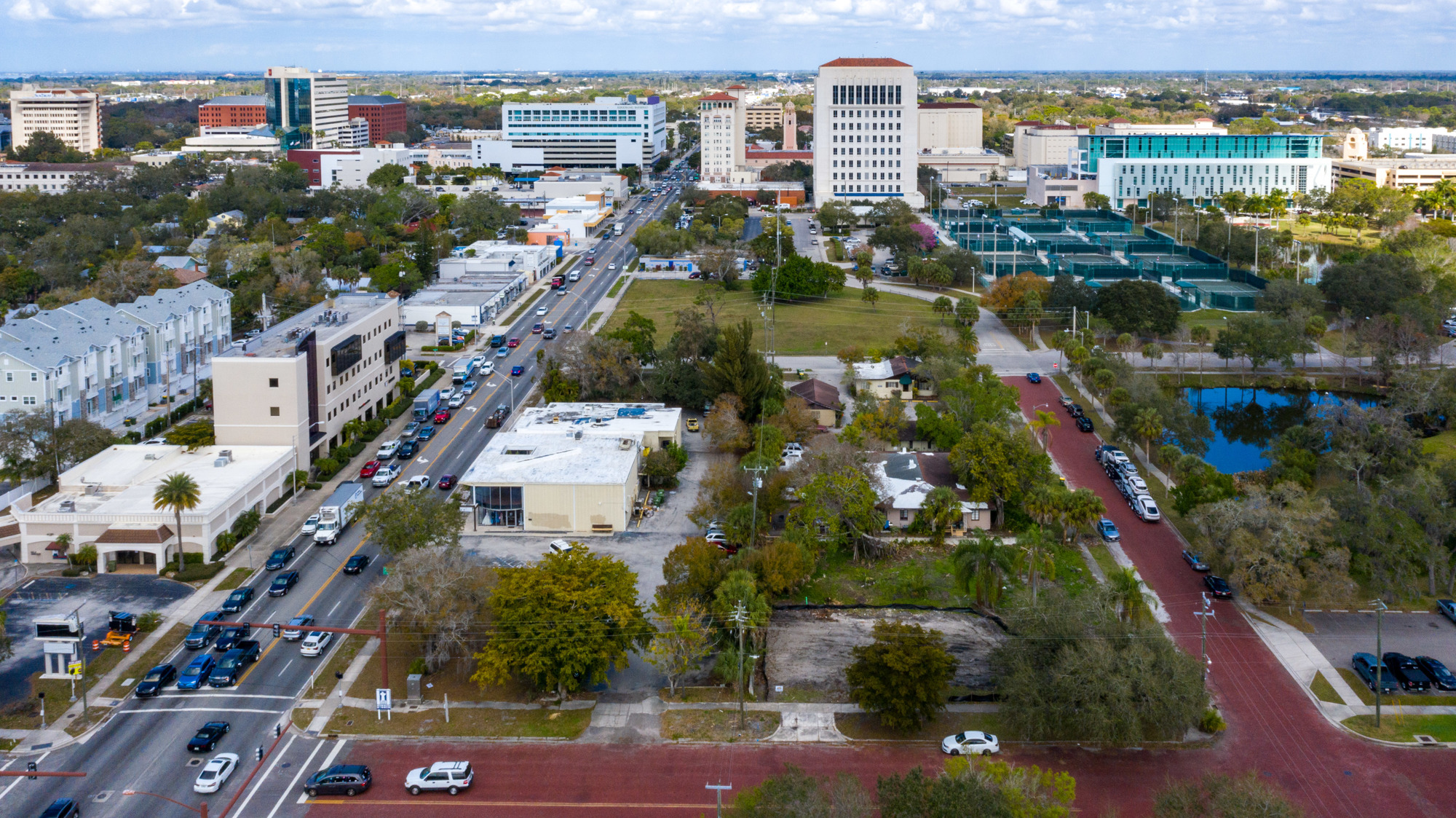- May 1, 2025
-
-
Loading

Loading

After more than two years of contentious discourse, spurned overtures and attempts to revive a rejected concept, the Sarasota Orchestra still considers Payne Park off limits for construction of a music hall.
In an interview Tuesday, Sarasota Orchestra President and CEO Joe McKenna said Payne Park is “off the table” as the arts organization continues to search for a site to build a new venue. Since 2019, the orchestra has called the downtown-adjacent park the only viable site for a facility that meets its needs within city limits. Now, McKenna’s assessment places into question the orchestra’s future in the municipality it’s called home for more than 70 years.
For the orchestra, “off the table” may not mean that it’s permanently crossing Payne Park off its list. City Manager Marlon Brown said he continues to engage in regular conversation with McKenna about the possibility of accommodating the orchestra in the Payne Park area. Despite McKenna’s characterization of the status of the Payne Park plans, city leaders said they would keep working with the orchestra in hopes of retaining the organization.
“The city wants to be a partner,” Brown said. “The city wants to be a champion for the orchestra remaining in the city.”
Still, other officials expressed skepticism about the city’s ability to change the orchestra’s outlook on the viability of using Payne Park — particularly as it pertains to a potential legal challenge to a music hall on the site.
“We can’t say there are no legal issues,” City Commissioner Jen Ahearn-Koch said. “That’s literally something we can’t do.”
McKenna said there were two factors that precluded the pursuit of land in Payne Park. One is the City Commission’s 2019 vote to reject the orchestra’s initial request to use seven acres in Payne Park for the construction of a new venue. The other, McKenna said, are legal and land policy issues associated with the site.
McKenna said both of those issues were the city’s responsibility to address. McKenna did not directly answer whether the city could take certain actions to resolve the issues to the orchestra’s satisfaction, stating he did not want to presume what the city was willing and capable of doing.
“The orchestra’s merely stating it’s the legal issues and the land policy issues that prevent it from moving forward,” McKenna said.
The central legal issue associated with the orchestra’s Payne Park proposal is tied to a deed restriction in the 1925 conveyance of the property from Calvin Payne to the city. When the city acquired the land at a discounted price, the deed stated the land was to be used “for park, playground and kindred uses and for no other use or purpose.” Residents who oppose the prospect of putting a music hall on public parkland have pointed to that clause as evidence the project can not move forward.
McKenna said the orchestra’s outlook remains the same as it did on March 31, when the organization sent a report to the city regarding the venue search. In the report, the orchestra indicated it would be willing to consider Payne Park again if the city addressed the outstanding issues to its satisfaction, but it did not guarantee the park would become the favored site.
“If the city were to adopt a favorable policy and accept the authority granted to them by the state statute, the orchestra would look forward to further dialogue; however, our search for the best site for a transformational music center continues,” the report stated.
Asked what specifically the city could do to satisfy the orchestra’s legal concerns, McKenna did not provide an answer.
“Our sense is that it’s in their court to determine how we might approach those items,” McKenna said.

Park preservationists and city officials have both said it’s unclear how litigation over the deed restriction would play out. City Attorney Robert Fournier wrote a 2019 memo stating Florida case law “could support a potentially successful legal argument” for the orchestra’s plan, but he said a direct precedent had not been set.
Kelly Franklin, president of the Preserve Payne Park coalition, said it would take a lengthy, costly legal battle to settle the question of whether an orchestra venue was permissible in Payne Park. Franklin said McKenna’s desire for the city to address all legal issues was unrealistic — and that beyond the legal issues, officials must also consider the outspoken public opposition to the orchestra’s proposal since 2019.
Franklin has also challenged the orchestra’s continued assertion that its initial proposal is its only viable option, calling the seven-acre footprint oversized. She pointed to facilities such as Carnegie Hall, which features 3,671 seats in three auditoriums on .63 acres.
She said McKenna’s latest stance on Payne Park suggested a lack of seriousness about staying in its longtime hometown.
“It feels like a game now; it really does,” Franklin said. “Either he’s not understanding the picture all the rest of us do, or he’s trying to pin the blame elsewhere for a decision he’s already made.”
Ahearn-Koch said legal questions have informed her opposition to the orchestra’s Payne Park request since 2019. She continued to suggest the orchestra could look elsewhere for a location within the city to build a new venue, including public land on the bayfront near the Beatrice Friedman Symphony Center, the organization’s current primary home.
Ahearn-Koch called the orchestra a beloved cultural institution and said she was willing to do anything within reason to get the organization to stay. Still, she said there were limits to the city’s ability to prevent an independent group from moving out — particularly when the orchestra has not disclosed all the specific factors informing its search process.
“We have said, ‘We value you; we want you to stay in the city of Sarasota,’” Ahearn-Koch said. “If, after all of that communication, they with their own criteria say, ‘We can’t stay,’ and we’re not privy to that criteria, I don’t know what we can do.”
As the relocation effort continues with no firm public timeline for a final decision, McKenna did not rule out the prospect of identifying an alternative site to Payne Park in the city. Still, the orchestra has repeatedly stood by the planning effort that led to its initial plans. As a result, McKenna downplayed the prospect of an alternate design or as-of-yet unidentified site emerging at this point in the process.
“We have really looked at all of the possibilities,” McKenna said.